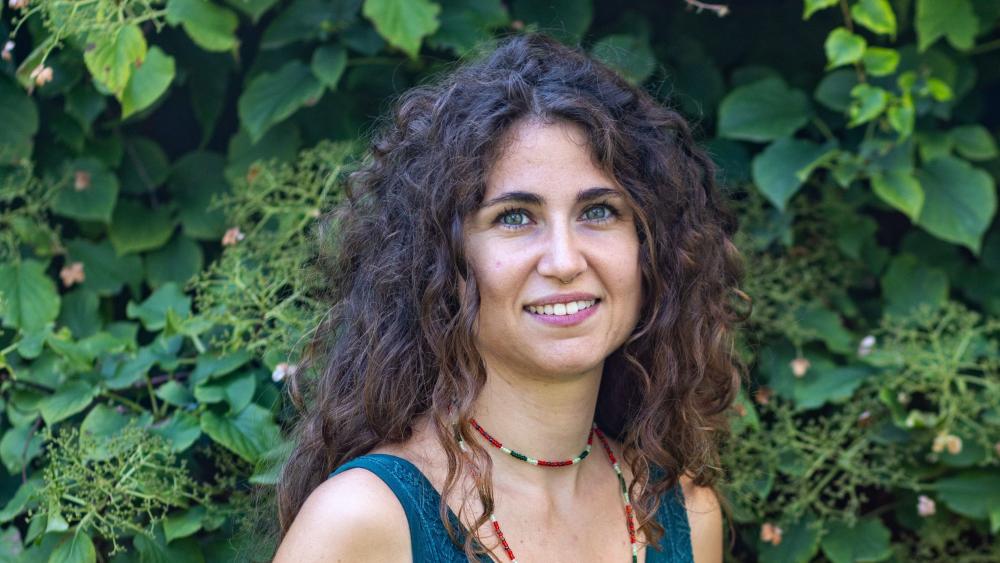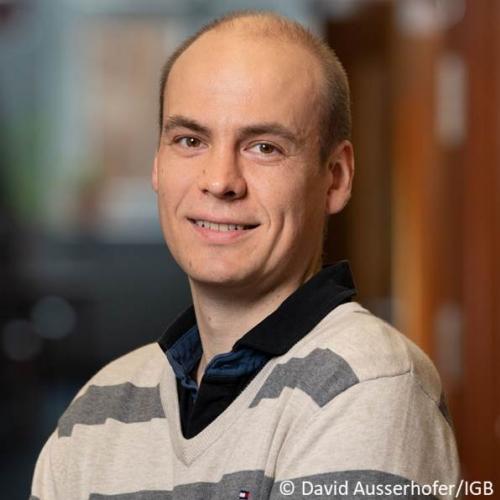
Dr. Afroditi Grigoropoulou | Photo: Berit Kraushaar
Dr. Afroditi Grigoropoulou defended her innovative doctoral thesis entitled “Open science approaches on assessing global aquatic insect biodiversity” in November 2024. She developed her complex project as a doctoral student in the international “Global Freshwater Biodiversity” research group, led by Dr. Sami Domisch, at the Leibniz Institute of Freshwater Ecology and Inland Fisheries (IGB). The biodiversity of aquatic insects is an important marker for the health of an ecosystem, i.e., of freshwater environments. This, in turn, is affected by climate change. For her doctoral project, Grigoropoulou developed the first international, standardized, location-based database for freshwater insects. She also developed tools for mapping rivers – a challenging task since rivers are complex, interconnected, flowing systems unlike the mainland. Finally, Grigoropoulou examined the ecological niche breadth of aquatic insects, i.e., the spatial patterns in which highly specialized insects occur. These species are particularly sensitive to climate change and the associated ecosystem changes.
The benefits and implications of Grigoropoulou’s research are enormous! Using the data and tools she has compiled, developed, and analyzed, we may be able to predict the impact of climate change on the biodiversity of freshwater insects in the future. These insects play essential roles in their ecosystems’ food chains. Thus, Grigoropoulou has made an important contribution to our understanding of this complex issue.
The jury was impressed by the award winner’s research findings, which have already been incorporated into nine publications, as well as her ability to unify a large, international team of researchers around a common goal.
The young scientist, who is now a postdoctoral researcher at IGB, is originally from Greece. She earned her bachelor’s degree in biology from the University of Athens and then moved to Barcelona, where she had already completed an Erasmus year, to pursue her master’s degree in ecology, environmental management, and restoration. While there, she worked in a marine biology lab and eventually specialized in freshwater insects. She came to Berlin and IGB in 2020 during the coronavirus pandemic.
Grigoropoulou acknowledges that gender discrimination is still an issue in academia. However, thanks to her supportive colleagues and her supervisor, Dr. Sami Domisch, she feels very welcome in her field, even in the male-dominated area of bioinformatics. In her experience, factors such as ethnic background and language barriers often affect the work of scientists in Germany more than gender does. “Recently, I have noticed an increasing political tendency toward xenophobia.” This is why Grigoropoulou is enthusiastic about the fact that, following her emigration to Great Britain, Marthe Vogt supported German Jews, anti-fascists from Franco’s Spain, political prisoners, and others who fled fascism. “Today, we academics are under pressure to remain politically neutral or to refrain from expressing ourselves. I find that difficult. Neutrality often strengthens the position of the oppressors.”
The award presentation ceremony will take place at 18:00 on October 13, 2025, at the Museum für Naturkunde Berlin.
We sincerely congratulate our colleague!
This text is based on the press release of the Forschungsverbund Berlin >
The Marthe Vogt Award
The Marthe Vogt Award (formerly known as the Award for Young Women Scientists) was established in 2001 by the Forschungsverbund Berlin. It is named after Marthe Louise Vogt (1903–2003), a pharmacologist and neurologist who researched neurotransmitters. Vogt worked as a senior scientist at the Kaiser Wilhelm Institute for Brain Research in Berlin-Buch. In 1935, she left Germany due to her opposition to National Socialism and migrated to Great Britain, where she continued her research with great success. The prize, worth €3,000, is awarded to young women scientists from the Berlin-Brandenburg region who recently submitted outstanding doctoral theses in the research areas of the FVB institutes.




